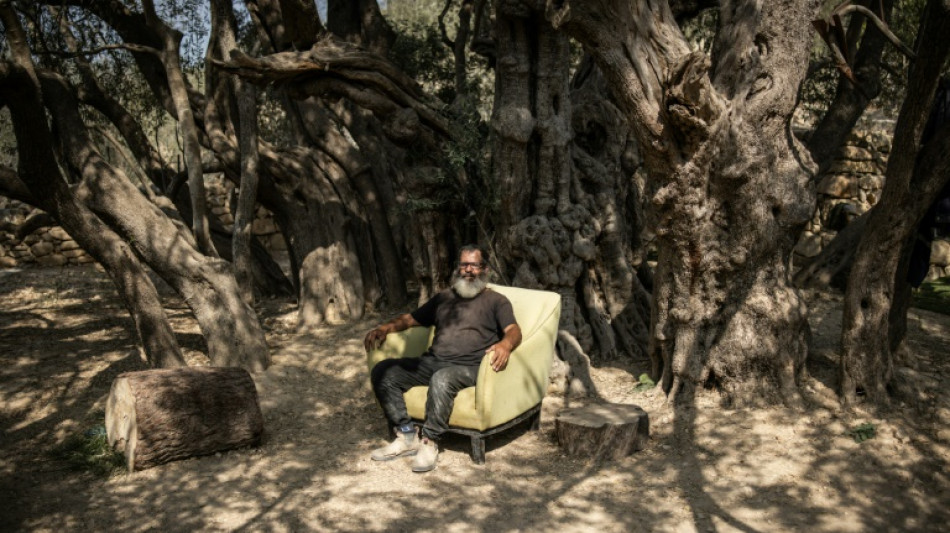
-
 Scandic Trust Group strengthens sales network with First Idea Consultant
Scandic Trust Group strengthens sales network with First Idea Consultant
-
Operation Cloudburst: Dutch train for 'water bomb' floods
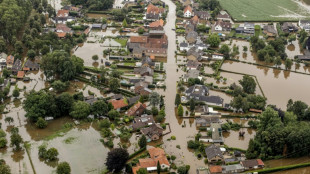
-
 Leaders turn up the heat on fossil fuels at Amazon climate summit
Leaders turn up the heat on fossil fuels at Amazon climate summit
-
US travel woes mount as govt shutdown prompts flight cuts
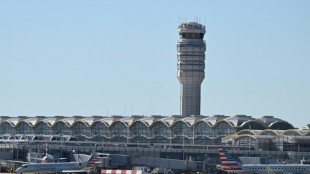
-
 North Korea fires unidentified ballistic missile: Seoul military
North Korea fires unidentified ballistic missile: Seoul military
-
West Bank's ancient olive tree a 'symbol of Palestinian endurance'
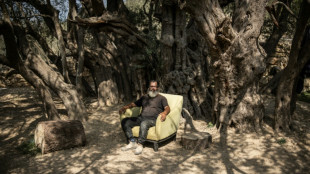
-
 Global tech tensions overshadow Web Summit's AI and robots
Global tech tensions overshadow Web Summit's AI and robots
-
Green shines as Suns thump Clippers 115-102

-
 Japan to screen #MeToo film months after Oscar nomination
Japan to screen #MeToo film months after Oscar nomination
-
Erasmus relishing 'brutal' France re-match on Paris return

-
 Rejuvenated Vlahovic taking the reins for Juve ahead of Turin derby
Rejuvenated Vlahovic taking the reins for Juve ahead of Turin derby
-
'Well-oiled' Leipzig humming along in Bayern's slipstream

-
 Bangladesh cricket probes sexual harassment claims
Bangladesh cricket probes sexual harassment claims
-
NFL-best Broncos edge Raiders to win seventh in a row

-
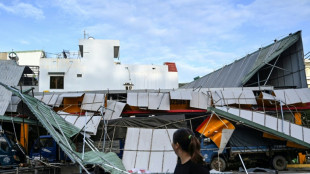 Deadly Typhoon Kalmaegi ravages Vietnam, Philippines
Deadly Typhoon Kalmaegi ravages Vietnam, Philippines
-
Three killed in new US strike on alleged drug boat, toll at 70

-
 Chinese microdrama creators turn to AI despite job loss concerns
Chinese microdrama creators turn to AI despite job loss concerns
-
Trump hails Central Asia's 'unbelievable potential' at summit
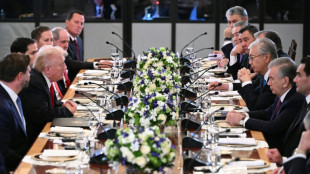
-
 Kolya, the Ukrainian teen preparing for frontline battle
Kolya, the Ukrainian teen preparing for frontline battle
-
Big leap in quest to get to bottom of climate ice mystery

-
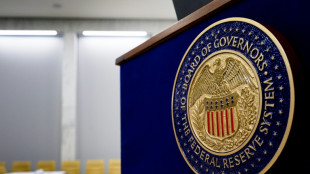 Markets drop as valuations and US jobs, rates spook investors
Markets drop as valuations and US jobs, rates spook investors
-
'Soap opera on cocaine': how vertical dramas flipped Hollywood

-
 Under pressure? EU states on edge over migrant burden-sharing
Under pressure? EU states on edge over migrant burden-sharing
-
US influencers falsely associate Mamdani with extremist group

-
 Hungary's Orban to meet Trump in face of Russia oil sanctions
Hungary's Orban to meet Trump in face of Russia oil sanctions
-
US facing travel chaos as flights cut due to govt shutdown

-
 Liverpool and Man City renew rivalry as they try to narrow Arsenal gap
Liverpool and Man City renew rivalry as they try to narrow Arsenal gap
-
UK's Andrew asked to testify over Epstein as he formally loses titles
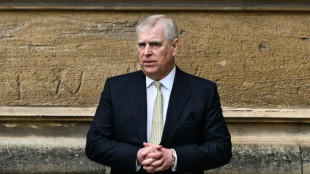
-
 Local hero: 'DC sandwich guy' found not guilty of assaulting officer with sub
Local hero: 'DC sandwich guy' found not guilty of assaulting officer with sub
-
Dead famous: Paris puts heritage graves up for grabs
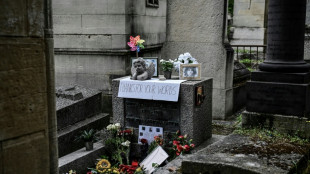
-
 UK grandmother on Indonesia death row flies home
UK grandmother on Indonesia death row flies home
-
Former NFL star Brown extradited from Dubai to face trial in shooting - police

-
 How to Sell Your Small Business Fast (Guide Release)
How to Sell Your Small Business Fast (Guide Release)
-
Chile presidential hopeful vows to expel 'criminal' migrants to El Salvador

-
 Trump event paused in Oval Office when guest faints
Trump event paused in Oval Office when guest faints
-
NFL Colts add Sauce to recipe while Patriots confront Baker

-
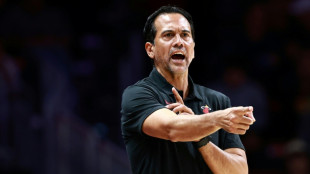 Home owned by Miami Heat coach Spoelstra damaged by fire
Home owned by Miami Heat coach Spoelstra damaged by fire
-
Tesla shareholders approve Musk's $1 trillion pay package

-
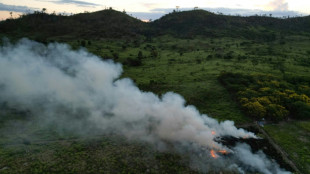 World leaders launch fund to save forests, get first $5 bn
World leaders launch fund to save forests, get first $5 bn
-
Villa edge Maccabi Tel Aviv in fraught Europa League match

-
 Protests as Villa beat Maccabi Tel Aviv under tight security
Protests as Villa beat Maccabi Tel Aviv under tight security
-
US Supreme Court backs Trump admin's passport gender policy

-
 Japan boss Jones backs Farrell to revive Ireland's fortunes
Japan boss Jones backs Farrell to revive Ireland's fortunes
-
MLB Padres name former reliever Stammen new manager

-
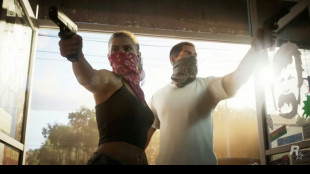 'Grand Theft Auto VI' video game delayed again until Nov. 2026
'Grand Theft Auto VI' video game delayed again until Nov. 2026
-
Martino returns as head coach of MLS Atlanta United

-
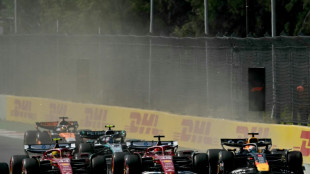 Hamilton dismisses Ferrari exit claims
Hamilton dismisses Ferrari exit claims
-
Musetti keeps ATP Finals hopes alive, joins Djokovic in Athens semis

-
 England boss Borthwick wants 'brilliant' Marcus Smith to shine against Fiji
England boss Borthwick wants 'brilliant' Marcus Smith to shine against Fiji
-
Piastri says he is confident he can recover and win drivers' title


West Bank's ancient olive tree a 'symbol of Palestinian endurance'
As guardian of the occupied West Bank's oldest olive tree, Salah Abu Ali prunes its branches and gathers its fruit even as violence plagues the Palestinian territory during this year's harvest.
"This is no ordinary tree. We're talking about history, about civilisation, about a symbol," the 52-year-old said proudly, smiling behind his thick beard in the village of Al-Walajah, south of Jerusalem.
Abu Ali said experts had estimated the tree to be between 3,000 and 5,500 years old. It has endured millennia of drought and war in this parched land scarred by conflict.
Around the tree's vast trunk and its dozen offshoots -- some named after his family members -- Abu Ali has cultivated a small oasis of calm.
A few steps away, the Israeli separation wall cutting off the West Bank stands five metres (16 feet) high, crowned with razor wire.
More than half of Al-Walajah's original land now lies on the far side of the Israeli security wall.
Yet so far the village has been spared the settler assaults that have marred this year's olive harvest, leaving many Palestinians injured.
Israel has occupied the West Bank since 1967, and some of the 500,000 Israelis living in the Palestinian territory have attacked farmers trying to access their trees almost every day this year since the season began in mid-October.
The Palestinian Authority's Colonisation and Wall Resistance Commission, based in Ramallah, documented 2,350 such attacks in the West Bank in October.
- 'Rooted in this land' -
Almost none of the perpetrators have been held to account by the Israeli authorities.
Israeli forces often disperse Palestinians with tear gas or block access to their own land, AFP journalists witnessed on several occasions.
But in Al-Walajah for now, Abu Ali is free to care for the tree. In a good year, he said, it can yield from 500 to 600 kilograms (1,100 to 1,300 pounds) of olives.
This year, low rainfall led to slim pickings in the West Bank, including for the tree whose many nicknames include the Elder, the Bedouin Tree and Mother of Olives.
"It has become a symbol of Palestinian endurance. The olive tree represents the Palestinian people themselves, rooted in this land for thousands of years," said Al-Walajah mayor Khader Al-Araj.
The Palestinian Authority's agriculture ministry even recognised the tree as a Palestinian natural landmark and appointed Abu Ali as its official caretaker.
Most olive trees reach about three metres in height when mature. This one towers above the rest, its main trunk nearly two metres wide, flanked by a dozen offshoots as large as regular olive trees.
- 'Green gold' -
"The oil from this tree is exceptional. The older the tree, the richer the oil," said Abu Ali.
He noted that the precious resource, which he called "green gold", costs four to five times more than regular oil.
Tourists once came in droves to see the tree, but numbers have dwindled since the start of the war in Gaza in October 2023, Abu Ali said, with checkpoints tightening across the West Bank.
The village of Al-Walajah is not fully immune from the issues facing other West Bank communities.
In 1949, after the creation of Israel, a large portion of the village's land was taken, and many Palestinian families had to leave their homes to settle on the other side of the so-called armistice line.
After Israel's 1967 occupation, most of what remained was designated Area C -- under full Israeli control -- under the 1993 Oslo Accords, which were meant to lead to peace between Palestinians and Israelis.
But the designation left many homes facing demolition orders for lacking Israeli permits, a common problem in Area C, which covers 66 percent of the West Bank.
"Today, Al-Walajah embodies almost every Israeli policy in the West Bank: settlements, the wall, home demolitions, land confiscations and closures," mayor Al-Araj told AFP.
For now, Abu Ali continues to nurture the tree. He plants herbs and fruit trees around it, and keeps a guest book with messages from visitors in dozens of languages.
"I've become part of the tree. I can't live without it," he said.
P.Stevenson--AMWN